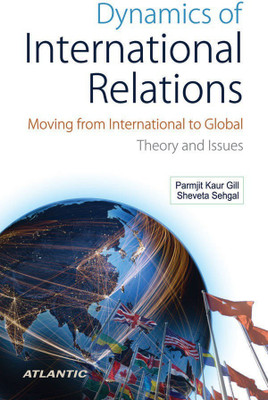Dynamics of International Relations Moving from International to Global Theory and Issues(English, Hardcover, Kaur Parmjit)
Quick Overview
Product Price Comparison
International relations are highly dynamic, in constant flux, unpredictable and complex. Shifting from state-centred international politics to multi-actors-centred global politics, there have been many changes. Present global politics is moving through the path of political, economic and cultural orientation. There are constant mutations in our world and so is with the study of international relations. The world is rapidly becoming interconnected and turning into a single integrated community. This movement and vibrant interactions are uniting the world and making national boundaries ŌĆśsoftŌĆÖ and less important. A number of non-state actors are making this process more successful. No nation state can ignore their existence and effectiveness. Consequently, the contemporary state system is challenged by non-state actors. However, information communication technologies have widened the jurisdiction of the state and helped it communicate with larger audience at a faster rate for quick responses and timely actions. Keeping all these dimensions in view, this book is divided into three parts: History, Theory and Issues. The First Part contains the history of international relations, particularly, the Cold War and post-Cold War era. The Second Part examines the theory of international relations. All major conventional theories such as Idealism, Realism/Neorealism, Liberalism/ Neoliberalism, and Dependency theories have been analysed. Along with it, an alternative theory, International Political Economy, has also been studied due to its relevance to global politics of today. The post-positivist theories such as Post Modernism, Critical Theory and Constructivism have been sufficiently explained. The Third Part consists of various important issues and processes. This part is divided into Five Chapters: Human Security; Gender Sensitization of World Politics; Environment: Contrasting Conceptions and Global Responsibility; Globalization; and Role of State and Non State Actors in Global Politics.


